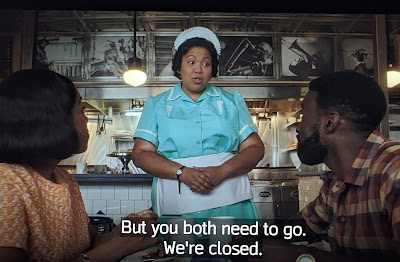May 25, 2022
Posted by Jay Livingston
A useful definition of addiction: trying to solve a problem by doing more of what caused the problem in the first place.
That’s the definition that came to mind when I read the response of politicians like Sen. Ted Cruz and Texas Lt. Gov.Dan Patrick to the massacre in a Uvalde, TX elementary school. They want more guns.
It’s the good-guy-with-a-gun solution, and it seems to make sense. Once you have created a world in a world where guns are a big problem because every bad guy can arm himself with military assault rifles, more guns seems like a logical solution.
I studied compulsive gamblers for my dissertation research. The men I hung out with certainly seemed to be in the grip of an addiction that kept them from thinking clearly about their problem. There wasn’t a lot of scholarly literature on the topic then (a big time-saver if you’re a grad student writing a dissertation). The Freudians talked about unconscious desires, and the behaviorists talked about reinforcement schedules. This was long before the days when brain activity would light up the fMRI screens.
What nobody considered was that compulsive gambling makes sense.
Does it make sense, is it rational, for a man to bet twice his weekly salary on a basketball game? From a distance, that seems crazy. But suppose he is already thousands of dollars in debt and has payments falling due soon — rent, phone bills, loan sharks. He needs a lot of money fast. He can’t get it from friends, loan companies, and banks any more. He has already used up his credit with them. A bet on the right team though could solve a lot of these problems or at least give him some breathing room. Is it possible? Of course it’s possible. He knows that he has made winning bets before. He knows that thousands of people will make that bet tonight and win. Of course, other thousands will lose, but all he has to do is be in the first group. And if he loses, well, the financial pressure he’s under is already so great that losing another few thousand will not substantially change his life.
Most of the gamblers I knew were, to varying degrees, in Gamblers Anonymous, a program that promotes abstinence as the only solution. Many of the men (there were no GA women in those days) said that initially they didn’t think they could ever get out of debt on just their regular income, but gradually they had done so. None of them had ever gambled his way out of debt, nor had any of their gambling buddies. They recognized the dream solution of the big score as a tempting but dangerous fantasy.
Many of them had made a big score occasionally. They took delight in recounting these, like the guy who spent ten minutes telling me how he had once handicapped the exact order of finish of the eight dogs in a race at Raynham. You can get a nice payout when you hit an exacta or trifecta. But he wound up in deep debt and eventually in GA.
The NRA similarly has a storehouse of good-guy-with-a-gun stories. Similar to the big-score stories of the men in GA, these frame “more guns” as a rational solution to the problem of gun violence.* Texas Governor Greg Abbott, back in 2015, touted more guns as a worthwhile goal.
Thousands of Texans got the message. This year, one of them was Salvador Ramos.
------------
* In “Arise Heroes” (here) Seth Brady Tucker, who grew up in Wyoming with guns and served in first Persian Gulf war, explains why the good-guy-with-a-gun is largely a fantasy.








